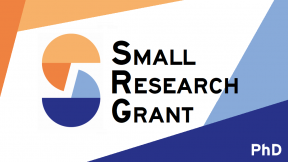What are the appropriate industrial policies over different stages of development? This project studies two ways to improve technologies: adopting existing technologies from foreign firms and innovating new technologies. On the one hand, technology adoption is considered an effective way to increase productivity since firms can follow the successful path of foreign firms. On the other hand, it requires finding a foreign firm willing to share the technology and paying a substantial fee. Also, adoption can occupy resources that could be utilised for innovation, which deters firms from innovating. While there are many theoretical papers on this topic, few papers provide empirical evidence and conduct quantitative analysis due to a lack of detailed data. Using microdata from South Korea, this project studies the role of technology adoption and innovation in growth over different development stages.
The research team construct a firm-level dataset with technology adoption and innovation in South Korea from 1962 to 1993, when it experienced rapid growth. First, they digitise the universe of technology transfer contracts between Korean firms and foreign firms, which includes the name of Korean and foreign firms, description of technologies, sector, contents of the contract, and adoption fee. They then merge the adoption data with firm-level patents and balance sheet data. To quantify the role of adoption and innovation in growth, the researchers build a two-country Schumpeterian growth model. The novel feature of the model is to capture the strategic interaction between domestic and foreign firms. When foreign firms sell technology, they internalise that the adopter can steal its profit using the adopted technology. Also, the productivity growth and the spillovers from adoption and innovation change with the technology gap from foreign firms.
This project will help policymakers to design the right technology policy depending on the stages of development. Since South Korea was one of the lowest-income countries in the 1960s, the analysis bears some relevance to the current experiences of low-income countries in sub-Saharan Africa. It will additionally help to make a long-term technology policy as it suggests different technology policies as the country develops. Specifically, this project evaluates Korea's technology policy, which started as an adoption subsidy and switched to an R&D subsidy. The quantitative framework will provide a policy lab that can be easily applied to different countries. Policymakers can experiment with several technology policies and study their macroeconomic effects.
The project finds that the policy, which started with an adoption subsidy and then shifted towards an innovation subsidy increased welfare by 5%, which raises welfare more than time-invariant policies that subsidize only innovation or adoption throughout. Our analysis also shows that the optimal year to switch from adoption to an innovation subsidy would have been 1985 when Korea’s GDP reached roughly half the frontier countries’ GDP.




















































